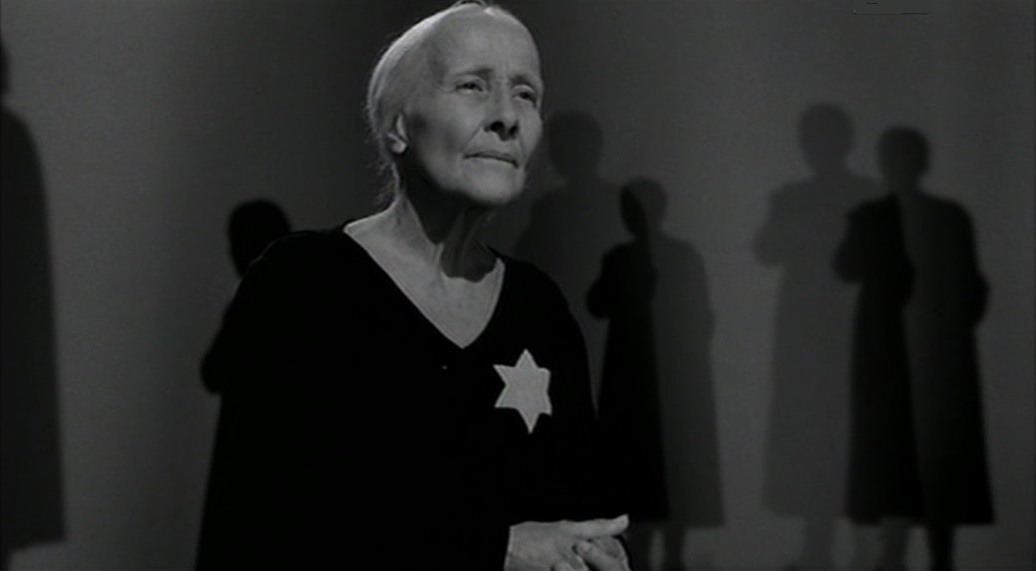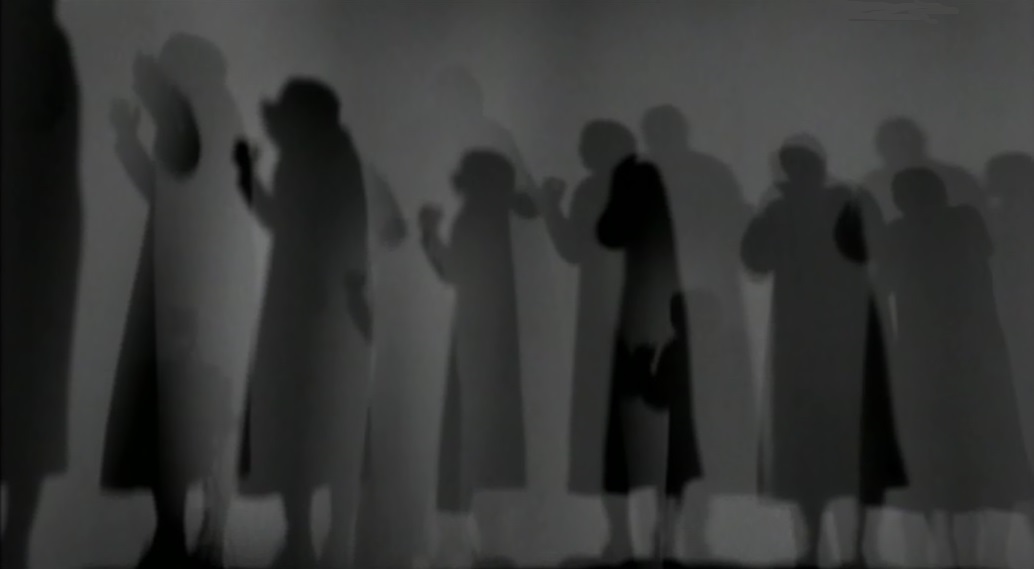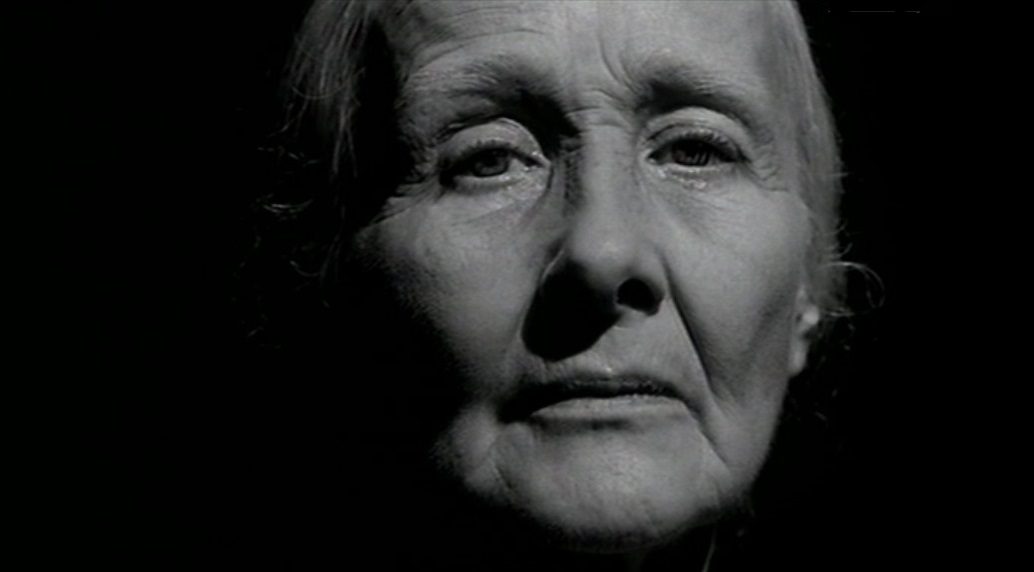Titicut
Follies
Dymphna is the
emblem of all neuroses, she is invoked at once before the bar of psychiatry.
The treatment is relatively humane, the prisoners are naked because they soil
themselves and are insensate. Brutality is not in evidence, only verbal
prodding of a cantankerous inmate, and a rough shave.
The criminally
insane are surprisingly good singers, have a remarkable political
understanding, or just pad and stomp in their cells. A pharmacopœia
alleviates catatonia and paranoia, with some hope of improvement. The prognosis
is not generally so good, benefit of clergy is offered.
Law and Order
A flat
unfamiliarity with the terms primarily characterizes the principals, young,
loud talkers, evasive, ignorant or innocent of the world.
The rostrum of
public order mounted by a presidential candidate is the daily routine, lost
little girl, domestic squabbles, ambulance cases, crimes and misdemeanors.
Kansas City, Mo.
Awarded an Emmy,
admired by Pauline Kael of The New Yorker
as “powerful”.
Hospital
A visit to the
hospital, Metropolitan Hospital Center, New York City.
A plethora of
cases, well and ill. Welfare adjunct, psychiatry,
police, sermon in the chapel on the greatness of God and the littleness of His
creatures.
Shown on
television, awarded two Emmys.
Basic Training
As depicted in a
number of films, here with an inside view made faster by the familiarity of the
subject.
Time Out Film Guide must have this explained (“bleak...
institutional indoctrination... dehumanisation”),
Lt. (later Capt.) Hoffman does so, “learn how to become a soldier.”
Blind
Thought goes into
everything while training is underway for children at the school, in addition
to their regular studies, they learn to walk in the dark and do everything
else.
Alabama School
for the Blind, Talladega.
Vincent Canby was
perplexed by side issues like discipline and sociology “that gnaw at the
mind” (New York Times).
Central Park
The great park is
seen and talked about a great deal, a thing of genius.
Three hours in
Central Park, viewed from every angle.
A major study
conducted informally.
Ballet
Wiseman goes
behind the scenes to chance dispelling one great illusion of ballet, and sets
the thing on a great basis. Dancers dance constantly, it is revealed, and
occasionally invite paying audiences to see them at work.
These technical grounds make for a finer understanding, and do no harm to the
art at all.
La Comédie-Française, ou
L’amour joué
The great
revelation is the decline of theater as a general principle, and not the mere
want of Broadway. The same ossified and inchoate æsthetics, the same
preoccupation with inutile electronics, and finally the same nostalgia, occupy
Molière’s house as much as Shubert’s.
Belfast, Maine
The broken
connections of Wiseman’s High
School are solidified into lilt, in this refreshingly sane look
behind the scenes Down East. It’s the poetry of line upon line and
percept on percept, and like a poem or a balance sheet it culminates in an
irrefutable bottom line.
Wiseman is an
expert diagnostician. At the risk of being misunderstood, one would compare him
to a special breed of dog that doesn’t worry bones or follow a spoor, but
sits panting until it receives enough scent particles to make an identification. Maybe there’s a more elegant way to say it, but one
can’t think how.
Domestic Violence
The new city and
its human wreckage, as seen on Cops.
Tampa, home of
the Central Command, morning to night.
To avoid a stalker,
one must either “disappear” or attain the Nirvana of asking,
“what does it matter what a jerk thinks?” Mencius surprised his
wife in an indecorous posture, wanted to divorce her, was put at fault by his
mother for failing to knock.
Echoes of The
Third Man (empty playground in the rain), Steaming (group therapy),
and Major Barbara (the raucous tales of brutality), with Philip of
Macedon judging his subjects in the end. “I appeal from Philip drunk to
Philip sober!”
Part II: men on
trial.
La Dernière
Lettre

From the Ukraine,
essentially describing two salient events, the arrival of the Germans and the
edict against Jews, “‘vous êtes hors la loi.’”
To the son of the
writer his mother, a woman and her shadow, wearing the star of David, “nous marchons dans la rue, sur les trottoirs... et plusieurs fois j’ai vu des yeux pleins de larmes... je me suis senti mieux.”
Wiseman’s
staging at the Comédie-Française, a play of shadows, a Beckettian
study of le geste. “Mon Dieu,
quelle misère partout!”
“Quels hommes
merveilleux, inadaptés, charmants, tristes, et bons.” Liquidation of
a shtetl, “on
extermine systématiquement,” presence and absence. “Je
regarde autour de moi et je me dis, est-il possible que nous soyons tous condamnés
à mort, qui attendent leur exécution,” just
then the repeated shadow becomes distinct from the actress, no longer an exact
projection, an effect from
Dreyer’s Vampyr insensibly evoking Boulez’ Dialogue de l’ombre double. “Je me réveille et de nouveau ce plafond, je
me souviens que les Allemagnes occupent notre terre, que je suis une lépreuse...”
Figure and shadow rejoin, dispart, “c’est notre toute dernière séparation.”

Markland Taylor (Variety,
reviewing the stage production), “far beyond tears.”
Elvis Mitchell of the New York Times, “riveting”. J. Hoberman (Village Voice),
“demonstrates the
power of language, performance, and narrative to hold an audience spellbound.”
Shlomo Schwartzberg (Boxoffice Magazine), “devastating”. Peter
Rainer (New York Magazine), “seems
densely inhabited.” Time Out, “simple and powerful”. Maria
Garcia (Film Journal International), “lacks the profound
insights you might imagine such a film would embrace.” Ken Fox (TV Guide), “all
the fear and understanding that comes with impending destruction.”

In contrast
to the collegial atmosphere of Part 1, Part 2 presents preliminary hearings and
adjudications. Here, a kind of jackass justice is dispensed on the fly.
Apparently, the
number of cases precludes any sort of preparation. Clerks and judges alike flip
through papers or screens for scant facts, D.A.s out of law school ask
perfunctory questions, and the prevailing theory seems to be that wearied
intimidation is the best one can do with the stream of offenders.
Exteriors of the
new city simply correlate these happenings with other evidence of social
vitality, primarily architectural. To say our buildings don’t fall down
isn’t much praise.
The Garden
Wiseman’s
film turns out to be the best barometer of New York, because it’s the only
one of his films debarred from public exhibition.
So we have all
been turned out of The Garden (Madison Square Garden) by the management,
who are said to object to certain scenes in which they appear.
The truth about a
Frederick Wiseman documentary is always larger than a place or an institution,
it’s just Americans, after all.
It happened to
Ken Russell (Dance of the Seven Veils), it happened to Rembrandt, and it
happened before to Wiseman (Titicut Follies).
State Legislature
Idaho’s
part-timers (the Speaker mentions California’s
“professionals”).
Microchipping foreign cows, robots for the military,
“video voyeurism”, teacher pay, you name it, dealt with in the
State Capitol.
You know what
goes on because you live there, in Idaho (or California or someplace else), and
because you’ve seen The Jerk
(dir. Carl Reiner) you know exactly what it is to be suddenly raised to an
eminence, listening to cockamamie pleas all day and granting them surcease, or
not.
Wiseman and his
camera film it for its several aspects, strange, familiar, and very poetic in
the Capra sense, dead end or interregnum.
Imagine a society
of unacknowledged legislators come to
life, a living literary magazine (The
Idaho Review, say, or California
Quarterly, the New York Review of
Books, even).
Listen to the
Speaker on Idaho’s water, and learn what a state legislature is for,
because everything in the state that isn’t nailed down is up for grabs.
Variety
cited Bismarck on sausage and the other thing.
“An
impeccably constructed illustration in depth, ceaselessly alert and
cumulatively profound” (Nathan Lee, Village
Voice).
Time Out Film Guide is of the same opinion, “a refreshingly
dense, meticulous and objective work”.